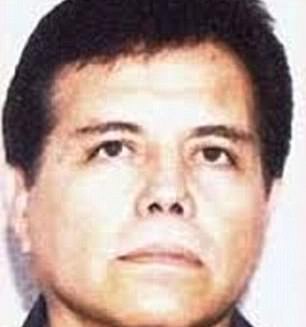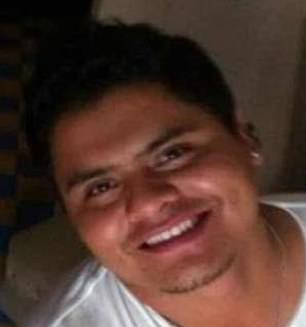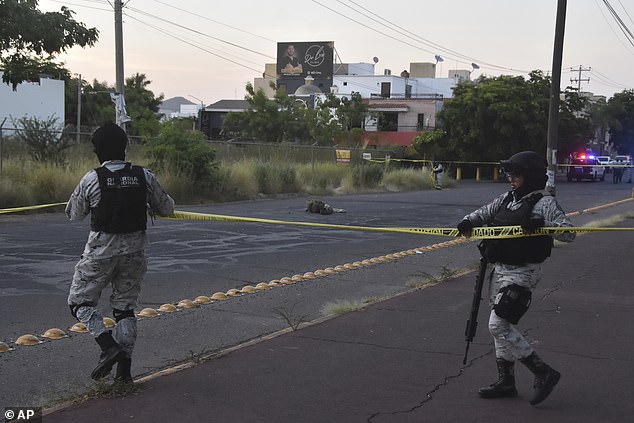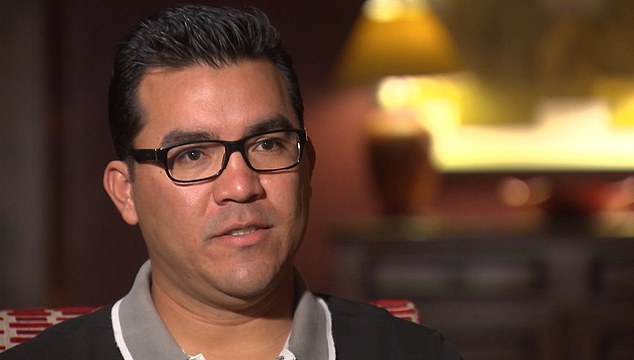Mexican cartels give members ‘permission’ to shoot US Border Patrol agents as Biden-Harris crisis spirals
Border patrol agents have been warned that the deadly Sinaloa cartel will turn its guns on them as a brutal power struggle engulfs the Mexican drug gang.
The notorious gangsters have historically been reluctant to take on U.S. law enforcement for fear of an overwhelming response.
But that restraint has been abandoned after the arrest of two senior figures sparked a battle for control of the multibillion-dollar cartel among its younger members.
The bloody turf war has gotten so out of hand that members are now allowed to shoot Border Patrol agents, according to an internal memo sent to federal agents in the El Paso sector. NewsNation reported.
“They’re not afraid of anyone anymore, especially American law enforcement,” former Homeland Security Investigation agent Victor Avila told the newspaper.
“They have the resources and the capabilities, and they will use them against us.”
Those guarding the US border have been warned they may be targeted for the first time by Mexico’s notorious Sinaloa drug cartel, as rival factions battle for control


More than 190 people have been killed since kingpins Ismael ‘El Mayo’ Zambada (left) and Joaquín Guzmán López (right) were arrested by US authorities in July.
The infamous group has been in turmoil since co-founder Ismael ‘El Mayo’ Zambada and Joaquín Guzmán López – the son of Joaquín ‘El Chapo’ Guzmán – were arrested in the US after flying there on a small plane on July 25.
The battle for control has since claimed more than 190 lives in the gang’s power base of Culiacán, in Mexico’s Sinaloa province.
But violence has begun to spread across the border after contractors working on a ranch in Eagle Pass, Texas, reported on October 15 that they had been shot at through the border fence.
An internal alert has since been sent to Customs and Border Patrol agents in the surrounding sector of El Paso, warning them to approach suspected cartel agents with extreme caution.
It comes less than a month after four rocket-propelled grenades were found alongside eight roadside bombs at an ammunition dump on the Mexican side of the border near Ajo, Arizona.
And the growing threat is increasing pressure on the Biden administration and its former border security czar, Kamala Harris.
“We have long heard from Border Patrol agents that they face greater risks in their frontline jobs,” said Rep. Mark Green, chairman of the House Homeland Security Committee.
“These reports are just further evidence that the cartels will do anything to take what they want.
“Our Border Patrol agents deserve policies that make their jobs easier. Unfortunately, Biden and Harris have given them the opposite.”

The National Guard is closing off an area where a body was found on a street in Culiacán this month

Former Homeland Security Investigation agent Victor Avila warned that the new generation of gangsters is not afraid of anyone
El Mayo claimed in a letter that he had been kidnapped by Guzmán López and forced onto the plane.
Since then, fighting has broken out between a faction led by one of his sons, Ismael ‘Mayito Flaco’ Zambada Sicairos, and Guzmán López’s siblings, Iván Guzmán Salazar and Jesús Guzmán Salazar – the last of the remaining Los Chapitos left is in power.
Cartel fighters kidnapped 20-year-old David Martínez, the son of local crime reporter Ernesto Martínez, and his two friends, Antonio Bojórquez and Ezequiel Jasso, on the evening of September 16 in the Culiacán neighborhood of Prados del Sur after stopping David’s vehicle and had their cell phones searched.
David Martínez was released hours after the kidnapping. But Antonio Bojórquez and Jasso were beaten to death and their bodies were found under the bridge along with another man on September 18.
The new generation of gunmen now routinely approaches people on the street or in cars and instructs them to hand over their mobile devices.
The owners will be killed if they find contacts of rival factions on the devices, or sometimes even a chat with the wrong word or a photo with the wrong person.
They will then target everyone on that person’s contact list, creating a potential chain of kidnapping, torture and death.
Residents of Culiacán, including veteran journalist Ismael Bojórquez, are reluctant to leave their homes because of the cartel’s tactics.
“You can’t go out of town for five minutes, … even in daylight,” Bojórquez said recently. ‘Why? Because the narcos have set up roadblocks and are stopping you and searching your cell phone.”
Last week, gunmen stormed a hospital in Culiacán to kill a patient who had previously been injured by gunfire.
And on October 4, drivers were surprised to see four armed men taking on a military helicopter trying to round them up along a highway north of the city.
Police have been unable to quell the violence as Culiacán’s entire municipal army has been temporarily disarmed by soldiers to check their weapons, something done in the past when the military suspects police officers are working for drug cartels.
The local army commander recently acknowledged that it is up to the cartel factions – and not the authorities – when the violence will stop.
“People live in fear, schools are empty, young people are disappearing, the streets are empty at night,” said Miguel Calderón, general coordinator of the State Council of Public Security.
“We have a social emergency ahead.”
